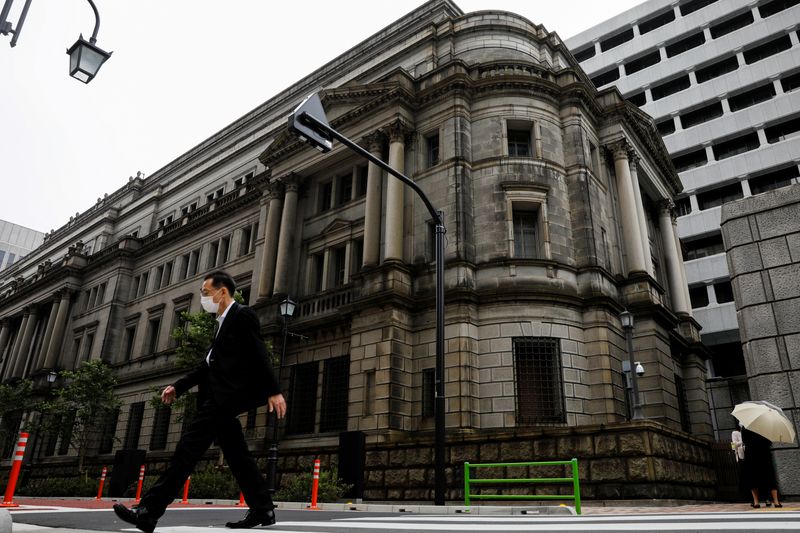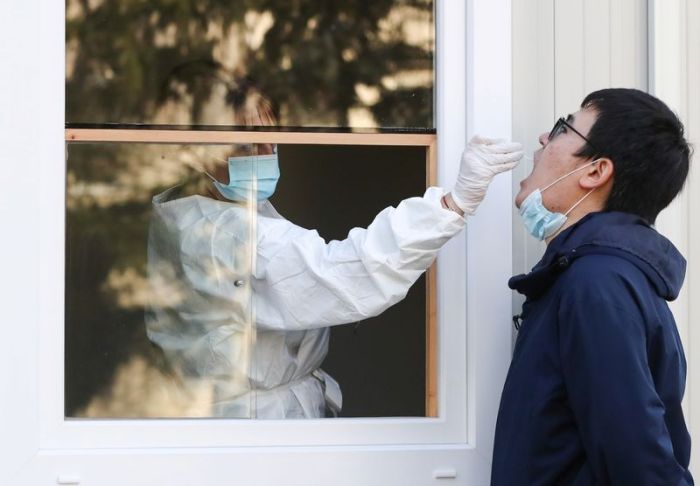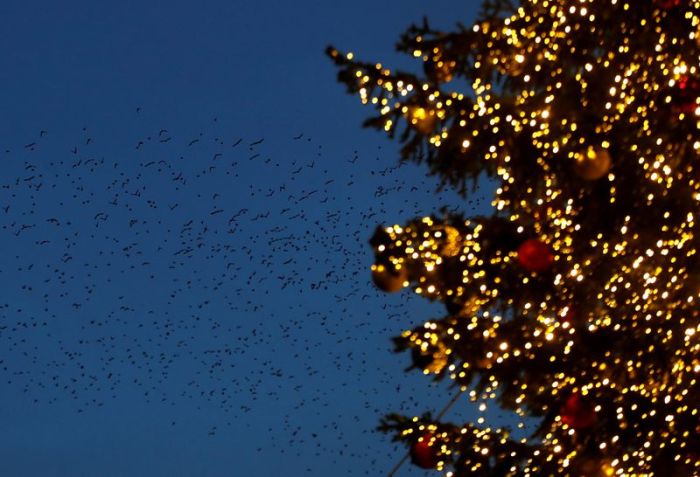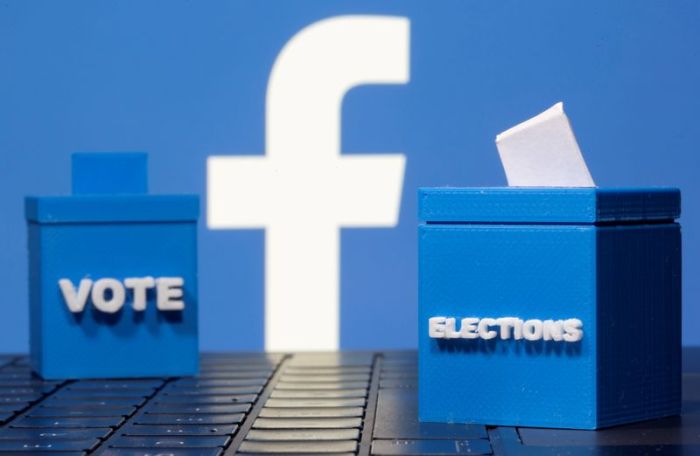TOKYO (Reuters) – The Bank of Japan will tap $6 billion in cash from a government account in a rare arrangement to ensure it has enough ammunition to combat any market disruptions caused by a recent resurgence in coronavirus infections.
Under the arrangement announced on Wednesday, the central bank will buy dollar cash from the Ministry of Finance any time through to the end of March next year at the prevailing market exchange rate at the time.
It will be the first time the BOJ will buy dollars outright from the MOF, underscoring the bank’s caution over the risk of renewed dollar-funding strains heading into the end of the year.
The move is “in preparation for smoother execution of the Bank of Japan’s operations, such as international financial cooperation and foreign currency supply to financial institutions,” the BOJ said in the statement.
The decision will likely give the BOJ flexibility to address any dollar shortages domestic financial institutions face ahead of the year-end and the March closure of Japan’s fiscal year.
“Dollar funding is not a problem now, but perhaps it could become a problem in the future. This is a reasonable move for the BOJ,” said Tohru Sasaki, head of Japan markets research at JP Morgan Securities.
“In the past, the BOJ has relied on the Federal Reserve. But if they do this transaction with the finance ministry they don’t have to rely on the Fed,” he said.
The MOF, for its part, can use the yen proceeds to pay for the rising cost of servicing Japan’s huge public debt diversify its foreign reserves by adding more gold, analysts said.
“The MOF wanted to raise yen and the BOJ dollars, so it was a win-win situation for both. By trading with each other internally, they could avoid affecting the currency market,” said Izuru Kato, chief economist at Totan Research.
The MOF currently holds $1.3 trillion in foreign currencies, deposits and securities, as well as $43 billion worth of gold.
Japanese financial institutions have repeatedly faced dollar funding strains in times of market stress, though the BOJ’s dollar-funding operations have drawn little demand in recent months as markets remain stable.
The BOJ, along with other major central banks, have dollar swap arrangements with the Fed, which was put in place to deal with the global financial crisis a decade ago.
“Our response this time was extremely extraordinary under the coronavirus circumstances,” a finance ministry official told Reuters.
The BOJ eased policy in March and April mostly by ramping up asset purchases and creating a new facility to funnel funds via financial institutions to cash-strapped firms hit by COVID-19.
While the BOJ has kept policy steady since then, central bank officials have stressed their near-term focus would be to address any funding strains and ensure markets remains stable.
(Reporting by Leika Kihara and Tetsushi Kajimoto; Additional reporting by Takahiko Wada, Kentaro Sugiyama, Takaya Yamaguchi and Stanley White; Editing by Richard Pullin and Sam Holmes)
























